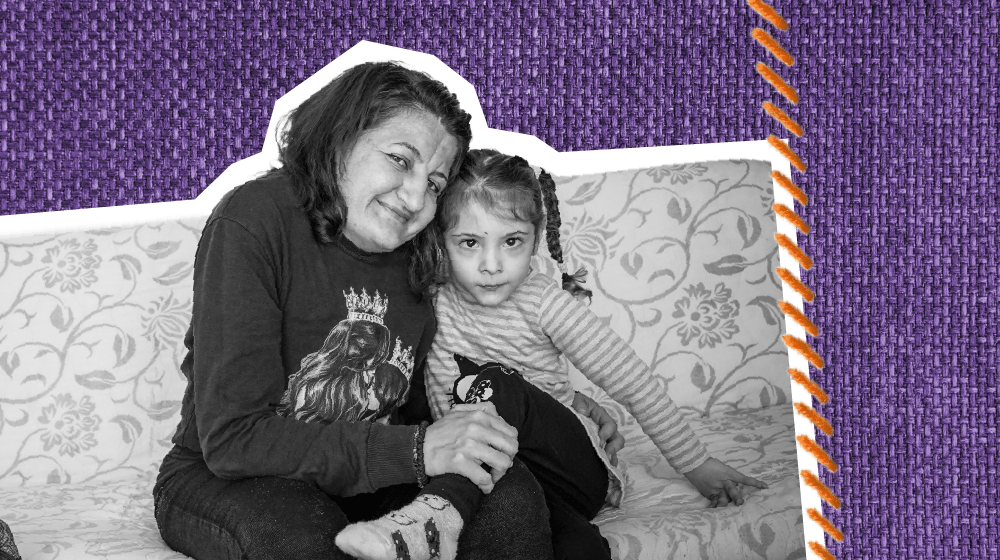"I always dreamed of having my own family,” said Sashka Smilkova. “But the family didn’t think I could get pregnant because of my disability. They even thought I might die giving birth."
Ms. Smilkova, 35, from Kratovo, a small town in eastern North Macedonia, is deaf and has a severe spinal deformity. In 2019, she found out she was pregnant.
"When I found out I was pregnant, everyone in the family told me that I wouldn't give birth to a healthy baby, but my partner and I decided to keep it," she said.
A doctor from the local hospital in Kratovo and a social worker from the University Clinic of Gynecology and Obstetrics in Skopje assisted Ms. Smilkova throughout her pregnancy.
"The support I received was impeccable,” she said. “The doctor told me I would give birth to a healthy child and he said I was brave."
Women living with disabilities often face stigma and discrimination when it comes to sexuality, reproductive health and child-bearing. According to a 2016 study, 40 per cent of people living with visual/hearing impairments in North Macedonia said there was no effort to raise awareness and reduce the stigma surrounding their sexual and reproductive rights; 46 per cent said they lacked quick and easy access to health-care facilities and services.
“We see numerous myths and taboos about people living with disabilities,” said Nada Tofoska, the social worker from the University Clinic who worked with Ms. Smilkova. “That they are hypersexual, or asexual, and incompetent in family planning or parenting. Unfortunately, such prejudices are common, not only among the general population but also among health-care providers.”
According to the 2021 census, almost five per cent of the population of North Macedonia live with a disability, lower than the global average (15 per cent).
In 2020, North Macedonia introduced the Law on Prevention and Protection from Discrimination, which guarantees protection from discrimination of people living with disabilities. More recently, the Government, in consultation with UNFPA and other national partners, launched a €46 million Strategy for 2023-2030 that includes the needs of people with disabilities. The Strategy substantially increases the accessibility and availability of health services, including sexual and reproductive health and other services. Despite these improvements, people living with disabilities continue to face significant barriers—including problems with communication and negative stereotypes—when trying to access health care.
Women living with disabilities not only have difficulty accessing quality sexual and reproductive health care, they are also at greater risk of violence. According to a UNFPA report, they are significantly more likely, over their lifetime, to be sexually assaulted than women without disabilities. To address this challenge, UNFPA has trained medical workers, including gynaecologists, social workers and psychologists, on how to assist people living with disabilities in North Macedonia with their sexual and reproductive health needs, and how to respond to and protect them from gender-based violence.
“People with disabilities have the right to decide freely and responsibly on the number and spacing of their children,” said Dr. Afrodita Shalja, Head of the UNFPA Office in North Macedonia. “And they have the right to have access to information and education on family planning.”
In 2023, UNFPA, together with partners, published a guidebook aimed at people living with disabilities and the health-care workers who provide services for them to enhance accessibility and inclusivity in delivering crucial sexual and reproductive health information and services.
Ms. Smilkova is thankful for her positive experience of pregnancy and childbirth and she encourages others to follow her path.
“It is a very good feeling to become a mother,” she said. “Don’t give up trying, whatever your circumstances."


